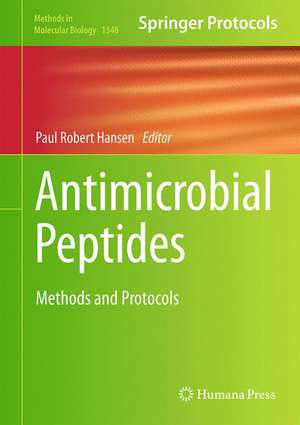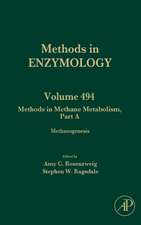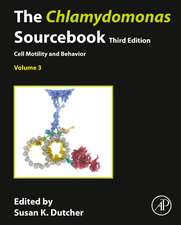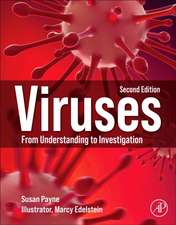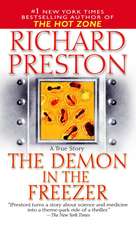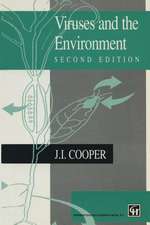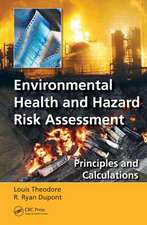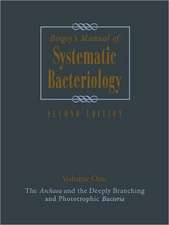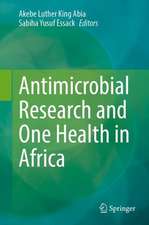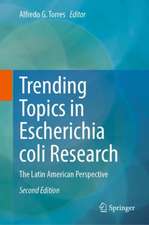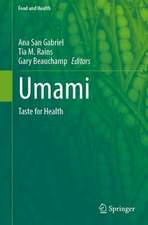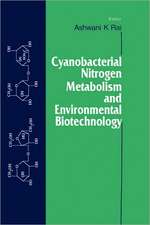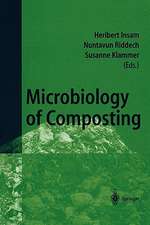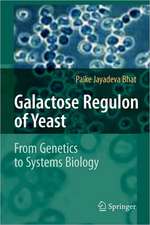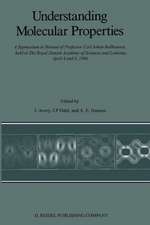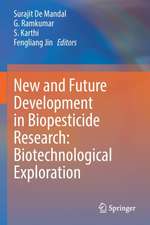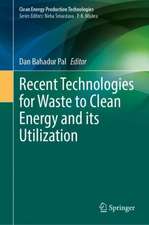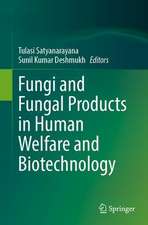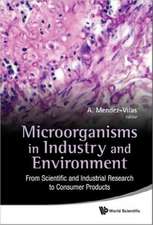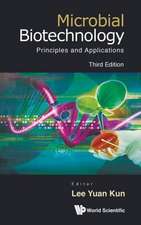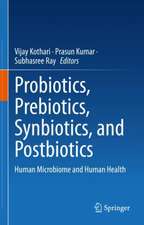Antimicrobial Peptides: Methods and Protocols: Methods in Molecular Biology, cartea 1548
Editat de Paul R. Hansenen Limba Engleză Hardback – 24 dec 2016
Authoritative and cutting-edge, Antimicrobial Peptides: Methods and Protocols aims to ensure successful results in the further study of this vital field.
| Toate formatele și edițiile | Preț | Express |
|---|---|---|
| Paperback (1) | 739.48 lei 6-8 săpt. | |
| Springer – 12 iul 2018 | 739.48 lei 6-8 săpt. | |
| Hardback (1) | 1019.31 lei 6-8 săpt. | |
| Springer – 24 dec 2016 | 1019.31 lei 6-8 săpt. |
Din seria Methods in Molecular Biology
- 9%
 Preț: 791.63 lei
Preț: 791.63 lei - 23%
 Preț: 598.58 lei
Preț: 598.58 lei - 20%
 Preț: 882.98 lei
Preț: 882.98 lei -
 Preț: 252.05 lei
Preț: 252.05 lei - 5%
 Preț: 802.70 lei
Preț: 802.70 lei - 5%
 Preț: 729.61 lei
Preț: 729.61 lei - 5%
 Preț: 731.43 lei
Preț: 731.43 lei - 5%
 Preț: 741.30 lei
Preț: 741.30 lei - 5%
 Preț: 747.16 lei
Preț: 747.16 lei - 15%
 Preț: 663.45 lei
Preț: 663.45 lei - 18%
 Preț: 1025.34 lei
Preț: 1025.34 lei - 5%
 Preț: 734.57 lei
Preț: 734.57 lei - 18%
 Preț: 914.20 lei
Preț: 914.20 lei - 15%
 Preț: 664.61 lei
Preț: 664.61 lei - 15%
 Preț: 654.12 lei
Preț: 654.12 lei - 18%
 Preț: 1414.74 lei
Preț: 1414.74 lei - 5%
 Preț: 742.60 lei
Preț: 742.60 lei - 20%
 Preț: 821.65 lei
Preț: 821.65 lei - 18%
 Preț: 972.30 lei
Preț: 972.30 lei - 15%
 Preț: 660.49 lei
Preț: 660.49 lei - 5%
 Preț: 738.41 lei
Preț: 738.41 lei - 18%
 Preț: 984.92 lei
Preț: 984.92 lei - 5%
 Preț: 733.29 lei
Preț: 733.29 lei -
 Preț: 392.60 lei
Preț: 392.60 lei - 5%
 Preț: 746.26 lei
Preț: 746.26 lei - 18%
 Preț: 962.66 lei
Preț: 962.66 lei - 23%
 Preț: 860.22 lei
Preț: 860.22 lei - 15%
 Preț: 652.64 lei
Preț: 652.64 lei - 5%
 Preț: 1055.50 lei
Preț: 1055.50 lei - 23%
 Preț: 883.87 lei
Preț: 883.87 lei - 19%
 Preț: 491.89 lei
Preț: 491.89 lei - 5%
 Preț: 1038.86 lei
Preț: 1038.86 lei - 5%
 Preț: 524.16 lei
Preț: 524.16 lei - 18%
 Preț: 2122.34 lei
Preț: 2122.34 lei - 5%
 Preț: 1299.23 lei
Preț: 1299.23 lei - 5%
 Preț: 1339.12 lei
Preț: 1339.12 lei - 18%
 Preț: 1390.26 lei
Preț: 1390.26 lei - 18%
 Preț: 1395.63 lei
Preț: 1395.63 lei - 18%
 Preț: 1129.65 lei
Preț: 1129.65 lei - 18%
 Preț: 1408.26 lei
Preț: 1408.26 lei - 18%
 Preț: 1124.92 lei
Preț: 1124.92 lei - 18%
 Preț: 966.27 lei
Preț: 966.27 lei - 5%
 Preț: 1299.99 lei
Preț: 1299.99 lei - 5%
 Preț: 1108.51 lei
Preț: 1108.51 lei - 5%
 Preț: 983.76 lei
Preț: 983.76 lei - 5%
 Preț: 728.16 lei
Preț: 728.16 lei - 18%
 Preț: 1118.62 lei
Preț: 1118.62 lei - 18%
 Preț: 955.25 lei
Preț: 955.25 lei - 5%
 Preț: 1035.62 lei
Preț: 1035.62 lei - 18%
 Preț: 1400.35 lei
Preț: 1400.35 lei
Preț: 1019.31 lei
Preț vechi: 1243.06 lei
-18% Nou
Puncte Express: 1529
Preț estimativ în valută:
195.07€ • 202.90$ • 161.04£
195.07€ • 202.90$ • 161.04£
Carte tipărită la comandă
Livrare economică 14-28 aprilie
Preluare comenzi: 021 569.72.76
Specificații
ISBN-13: 9781493967353
ISBN-10: 1493967355
Pagini: 439
Ilustrații: XIV, 439 p. 87 illus., 49 illus. in color.
Dimensiuni: 178 x 254 x 25 mm
Greutate: 1 kg
Ediția:1st ed. 2017
Editura: Springer
Colecția Humana
Seria Methods in Molecular Biology
Locul publicării:New York, NY, United States
ISBN-10: 1493967355
Pagini: 439
Ilustrații: XIV, 439 p. 87 illus., 49 illus. in color.
Dimensiuni: 178 x 254 x 25 mm
Greutate: 1 kg
Ediția:1st ed. 2017
Editura: Springer
Colecția Humana
Seria Methods in Molecular Biology
Locul publicării:New York, NY, United States
Cuprins
Antimicrobial Peptides: An Introduction.- Tools for designing amphipathic helical antimicrobial peptides.- Chemical Synthesis of Antimicrobial Peptides.- Microwave-Assisted Synthesis of Antimicrobial Peptides.- High Performance Liquid Chromatography and Mass Spectrometry-Based Design of Protolytically Stable Antimicrobial Peptides.- Determination of Structure and Micellar Interactions of Small Antimicrobial Peptides by Solution-State NMR.- Mass spectrometry approaches for determining the structure of antimicrobial peptides.- Molecular Dynamics Simulation and Analysis of the Antimicrobial Peptides-Lipid Bilayers Interactions.- Calorimetry methods to study membrane interactions and perturbations induced by antimicrobial host defense peptides.- Fluorescence and absorbance spectroscopy methods to study membrane perturbations by antimicrobial host defense peptides.- Applying Fluorescence Correlation Spectroscopy to InvestigatePeptide-Induced Membrane Disruption.- Macromolecule Biosynthesis Assay and Fluorescence Spectroscopy Methods to Explore Antimicrobial Peptide Mode(s) of Action.- Using Confocal Microscopy and Computational Modeling to Investigate the Cell Penetrating Properties of Antimicrobial Peptides.- Atomic Force Microscopy Study of the Interactions of Indolicidin with Model Membranes and DNA.- Protocols for studying the interaction of MSI-78 with the Membranes of Whole Gram-positive and Gram-negative Bacteria by NMR.- Preparation of membrane models of Gram-negative bacteria and their interaction with Antimicrobial Peptides studied by CD and NMR.- Studying the Interaction of Magainin 2 and Cecropin A with E. coli Bacterial Cells using Circular Dichroism.- Studying the Mechanism of Membrane Permeabilization induced by Antimicrobial Peptides using Patch-clamp Techniques.- Assays for Identifying Inducers of the Antimicrobial Peptide LL-37.- Methods for Elucidating the Mechanism of Action of Proline-rich and other Non-lytic Antimicrobial Peptides.- The Interaction of Antimicrobial Peptides with the Membrane and Intracellular Targets of Staphylococcus Aureus Investigated by ATP-leakage, DNA-binding Analysis and the Expression of a LexA Controlled Gene, recA.- Methods for Investigating Biofilm Inhibition and Degradation by Antimicrobial Peptides.- Protocols for Studying Inhibition and Eradication of Bacterial Biofilms by Antimicrobial Peptides.- Protocols for Studying Antimicrobial Peptides (AMPs) as Anti-cancer Agents.- Using Oral and Colon Cancer Cells for studying the Anti-cancer properties of Antimicrobial peptides.- Using Disease-Associated Enzymes to Activate Antimicrobial Peptide Prodrugs.- Anti-inflammatory Properties of Antimicrobial Peptides and Peptidomimetics: LPS and LTA Neutralization.- Protocols for Screening Antimicrobial Peptides That Influence Virulence Gene Expression in Staphylococcus aureus.- Methods for in vitro Analysis of Antimicrobial Activity and Toxicity of Anti-keratitis Peptides: Bacterial Viability in tears, MTT and TNF-a release assays.- Methods for In Vivo/ex-vivo Analysis of Antimicrobial Peptides in Bacterial Keratitis: siRNA Knockdown, Colony Counts, Myeloperoxidase, Immunostaining, and RT-PCR Assays.- Haemolytic Activity of Antimicrobial Peptides.
Textul de pe ultima copertă
This volume provides basic and advanced laboratory protocols for the non-specialist and the experienced researcher. Chapters are divided into three parts covering synthesis and characterization of AMPs, studying the interaction of AMPs with model systems or bacteria, and assaying selected biological activities of AMPs. Written in the highly successful Methods in Molecular Biology series format, chapters include introductions to their respective topics, lists of the necessary materials and reagents, step-by-step, readily reproducible laboratory protocols, and tips on troubleshooting and avoiding known pitfalls.
Authoritative and cutting-edge, Antimicrobial Peptides: Methods and Protocols aims to ensure successful results in the further study of this vital field.
Authoritative and cutting-edge, Antimicrobial Peptides: Methods and Protocols aims to ensure successful results in the further study of this vital field.
Caracteristici
Includes cutting-edge methods and protocols Provides step-by-step detail essential reproducible results Contains key notes and implementation advice from the experts
